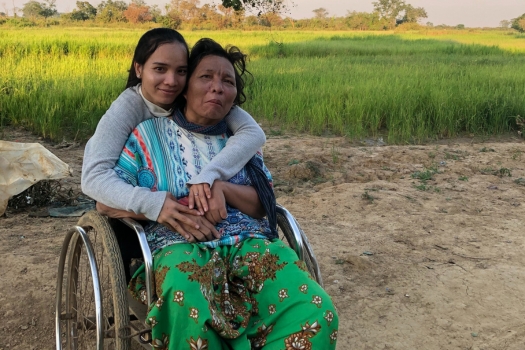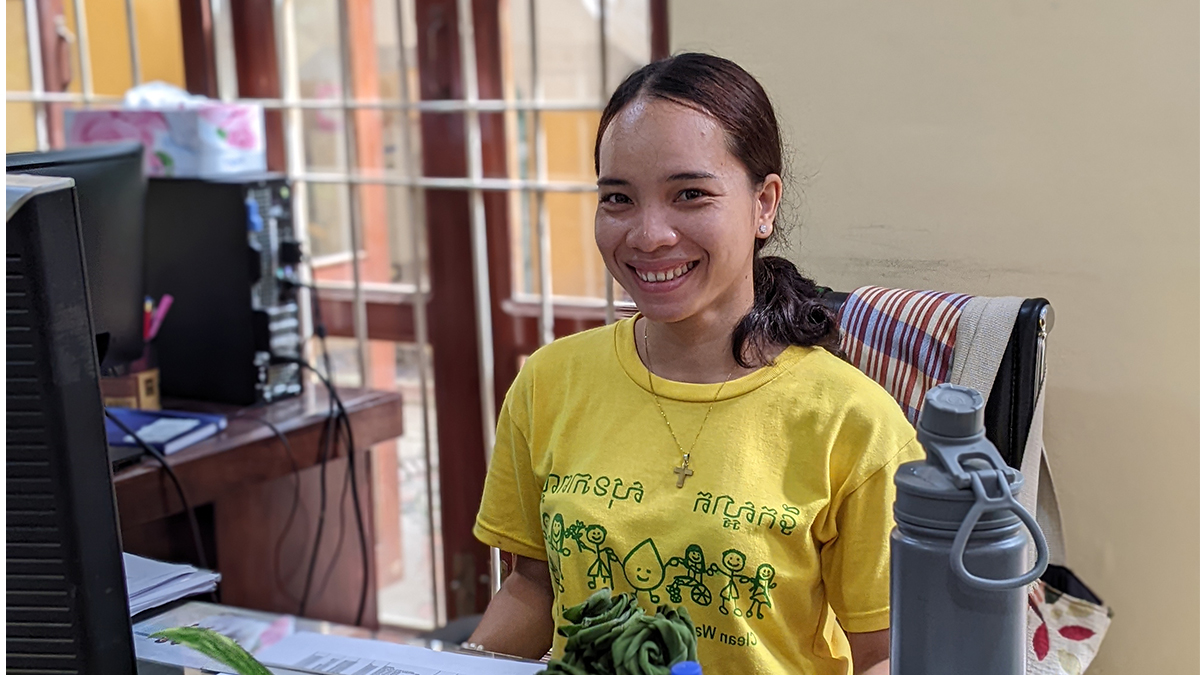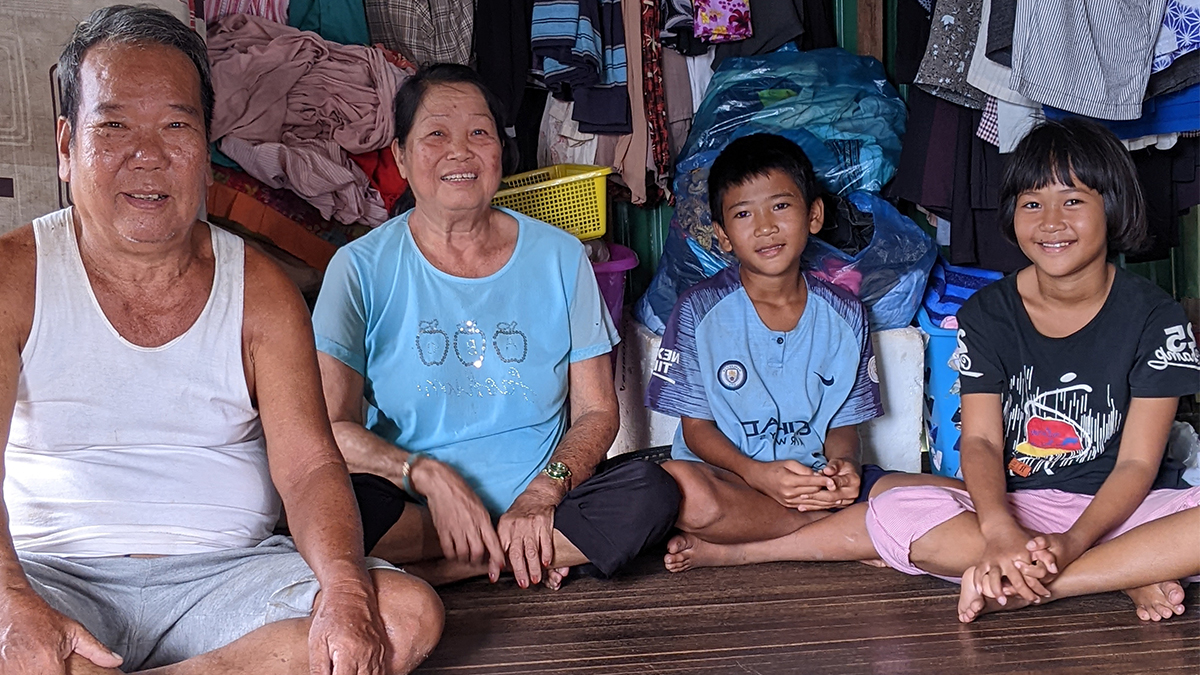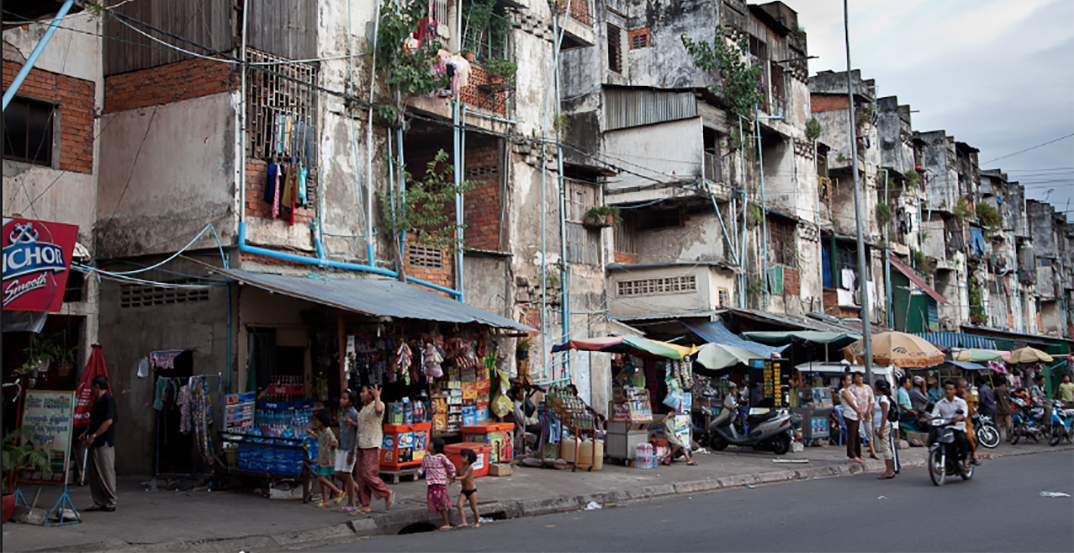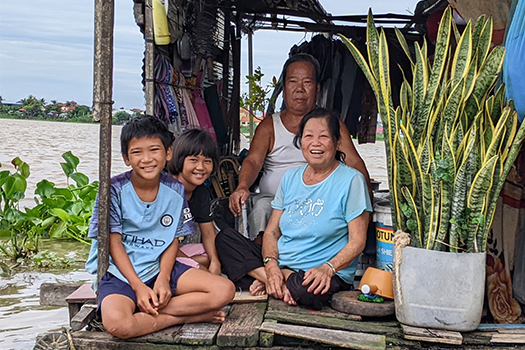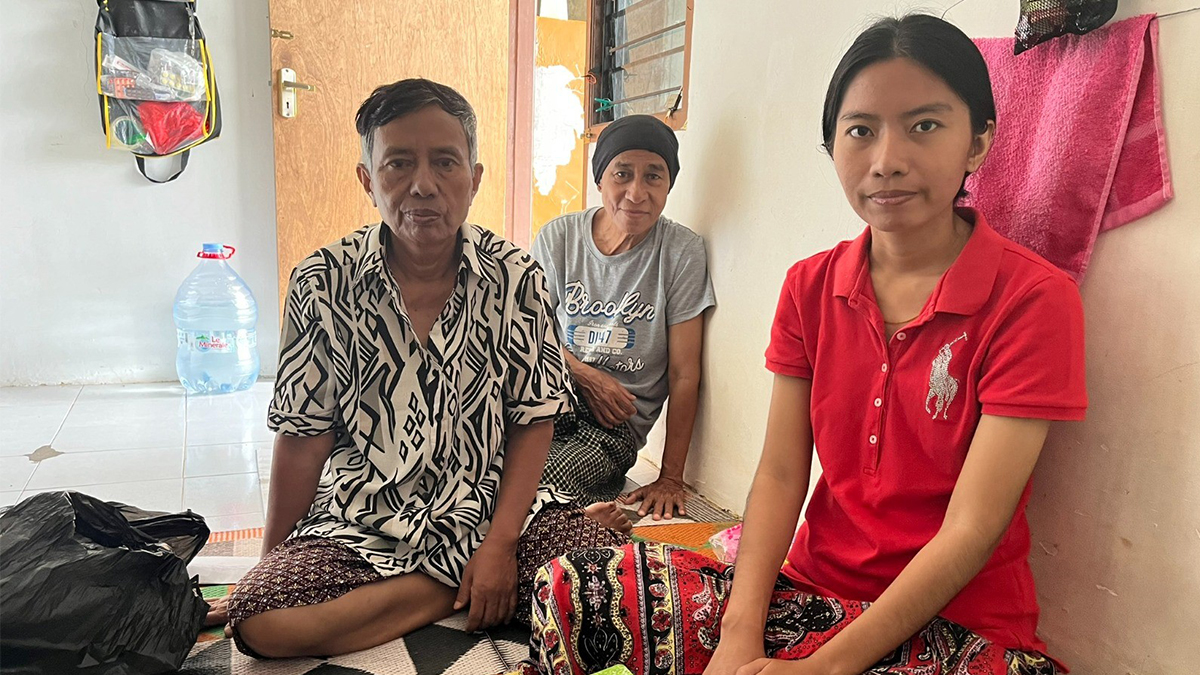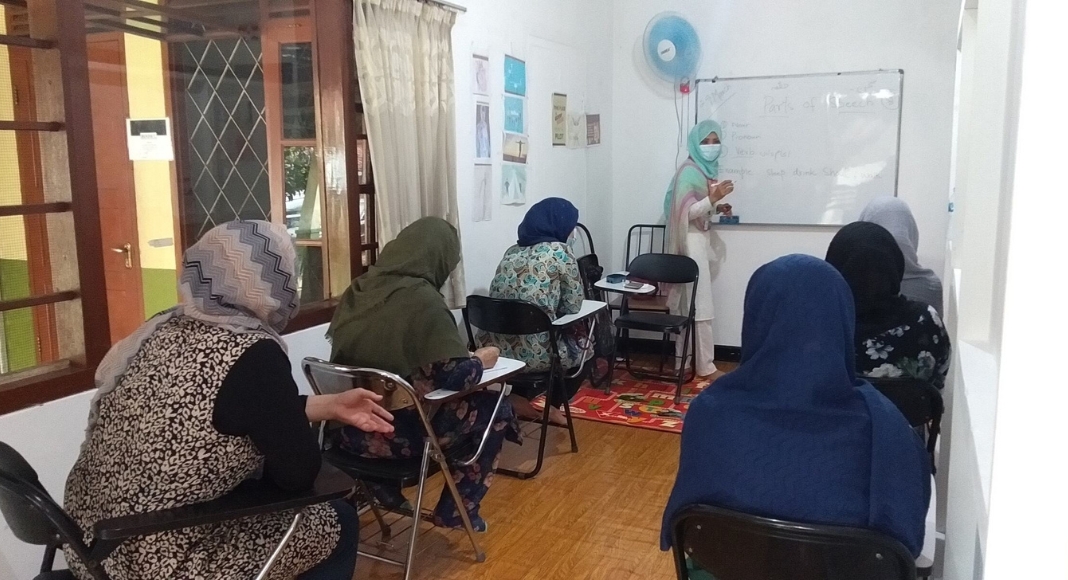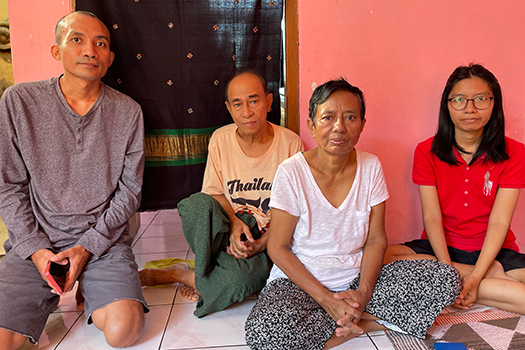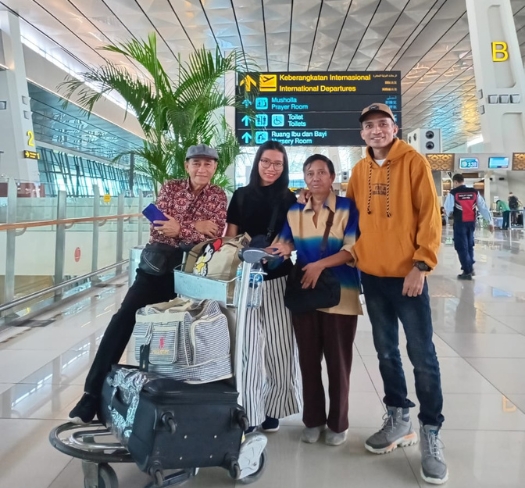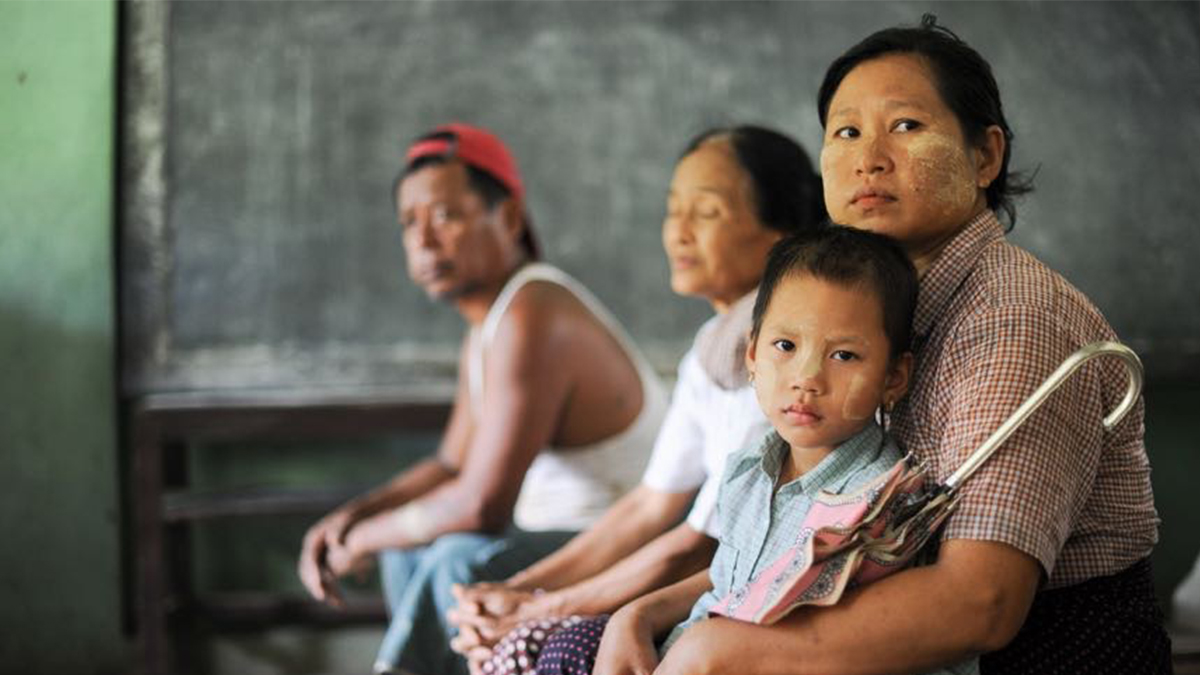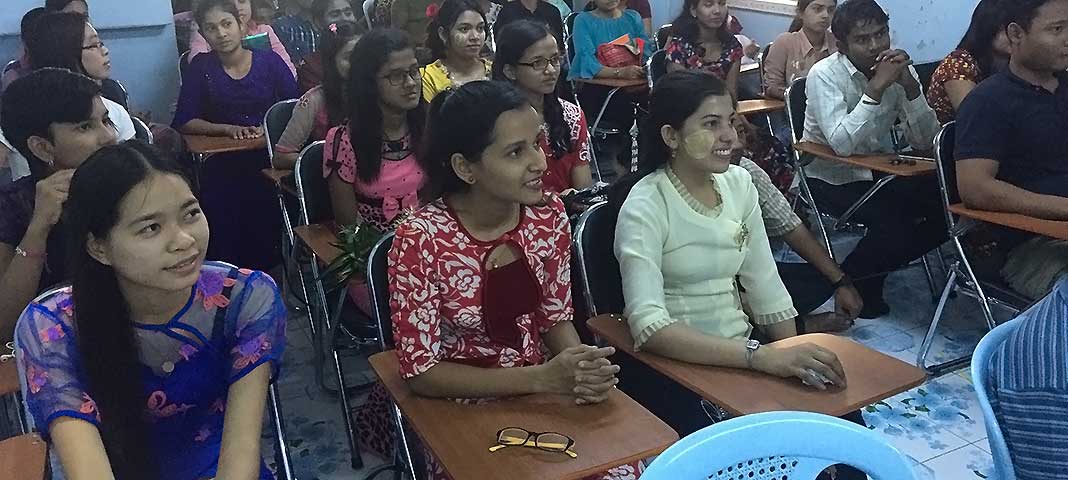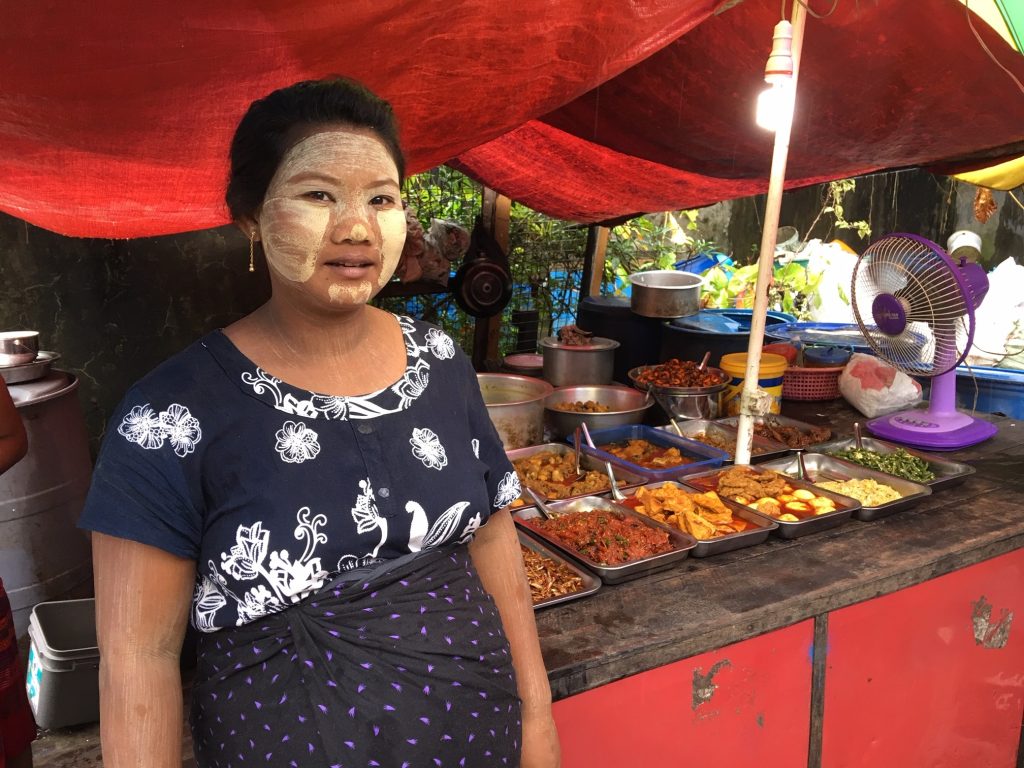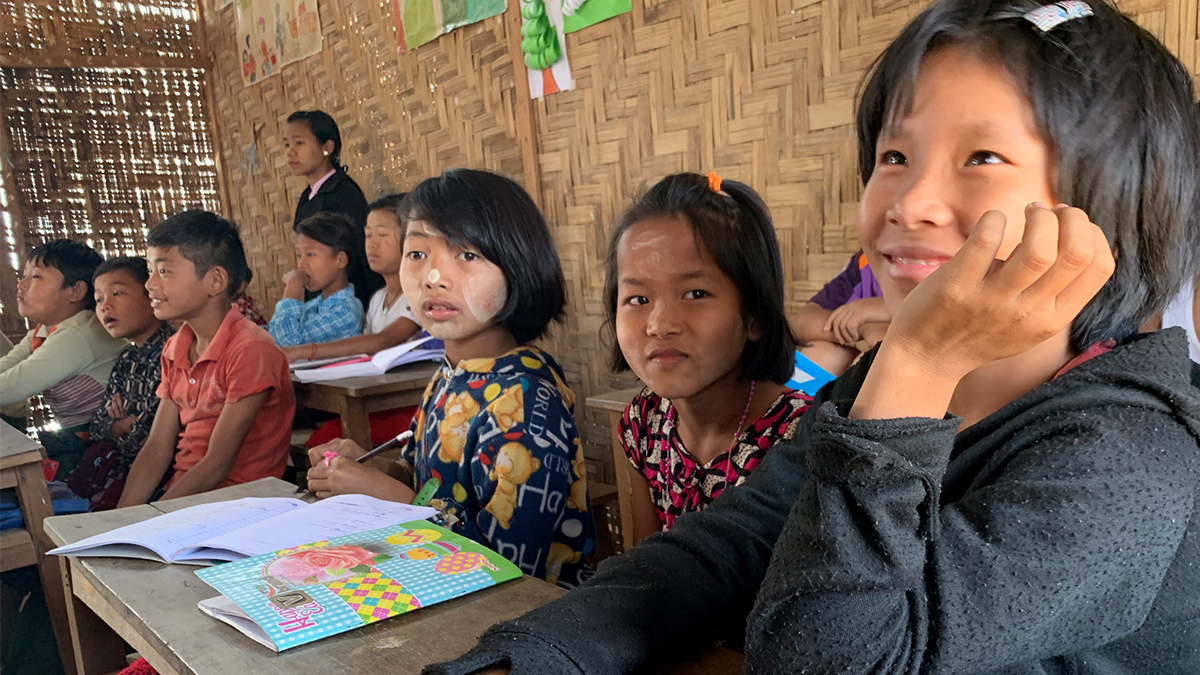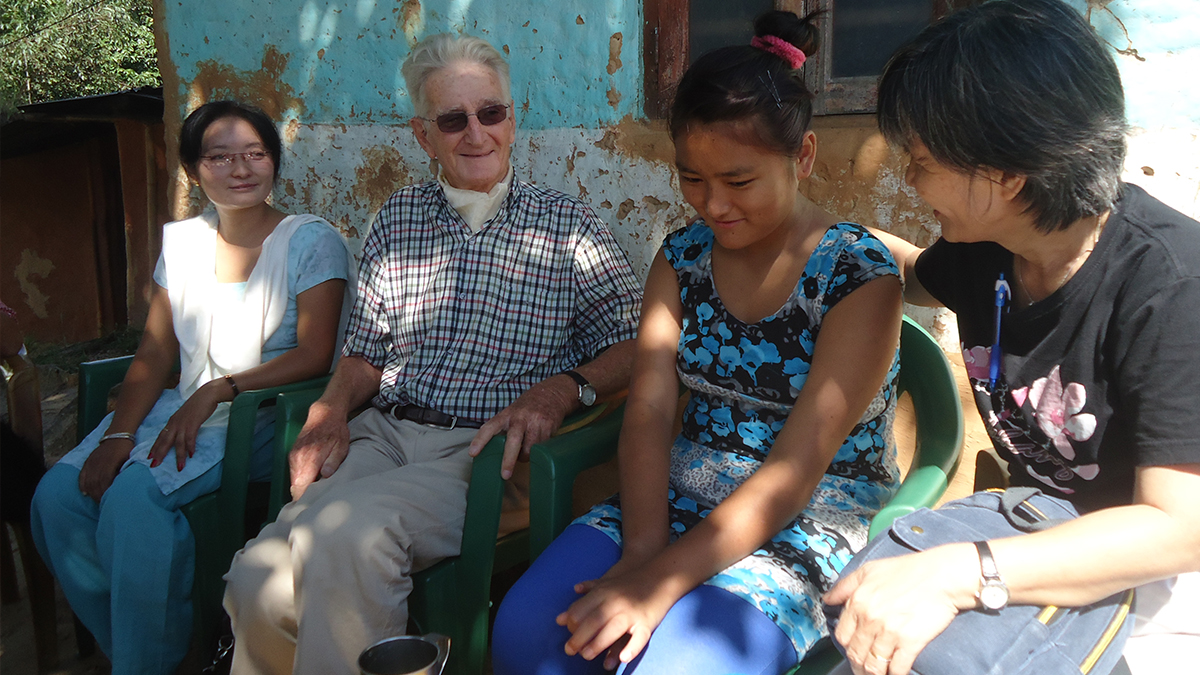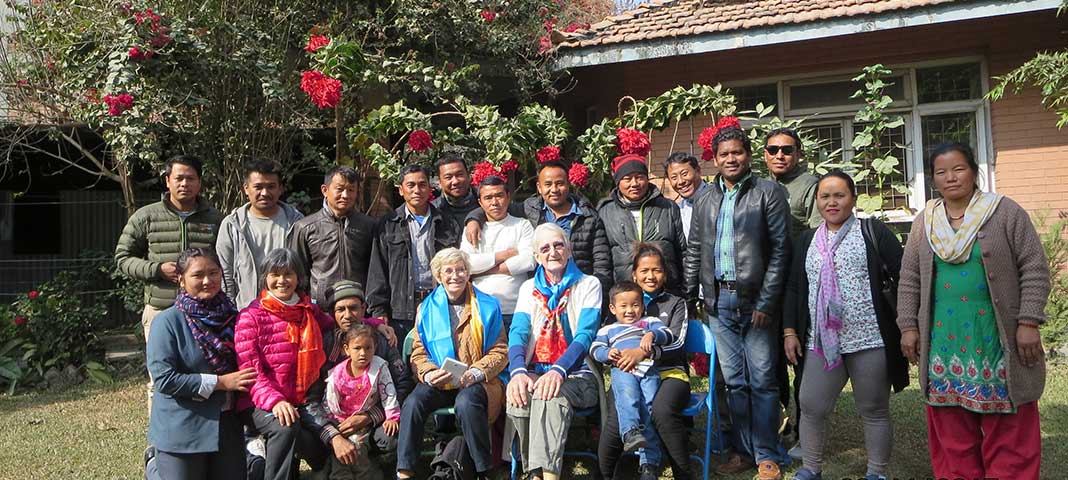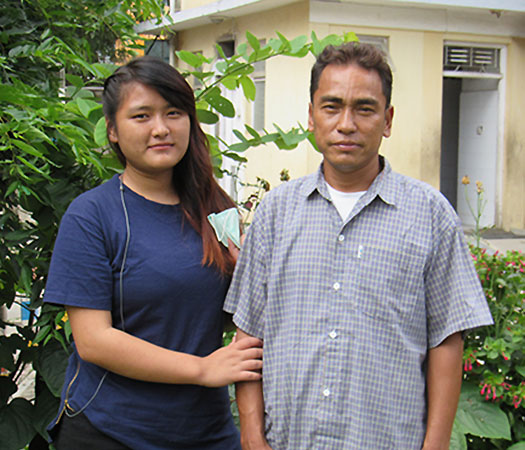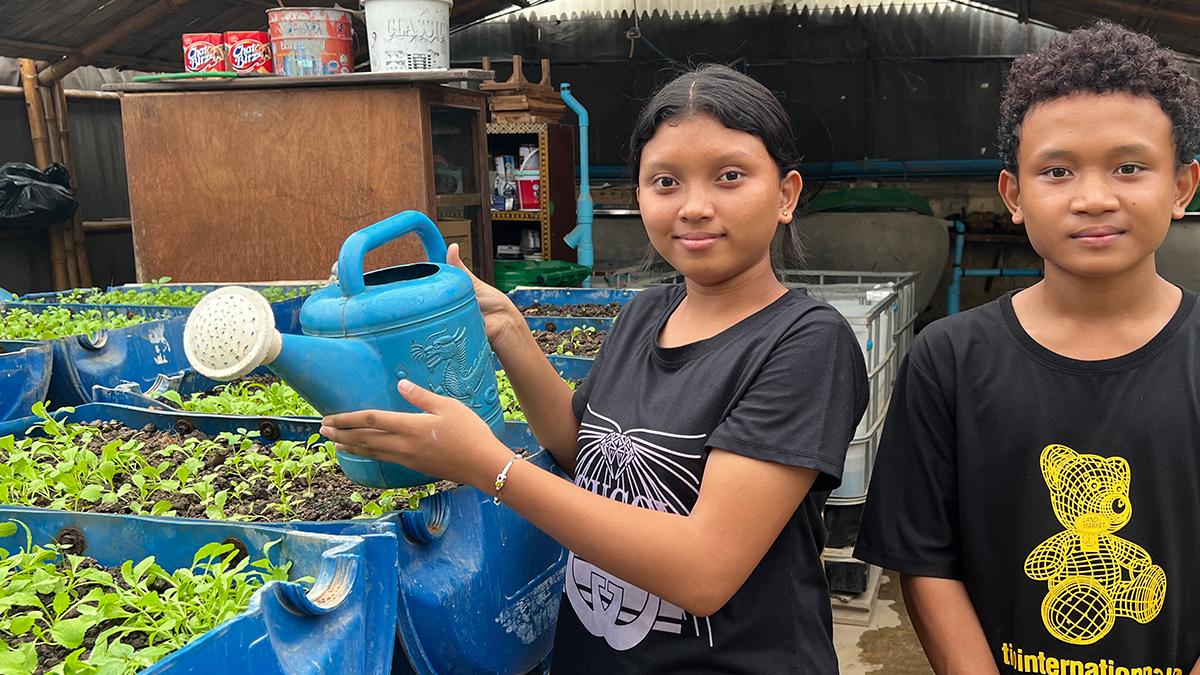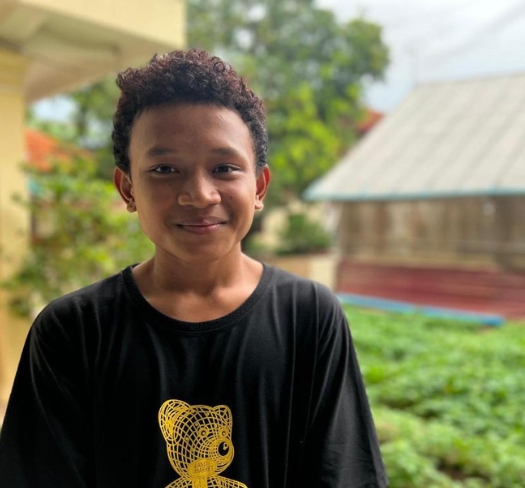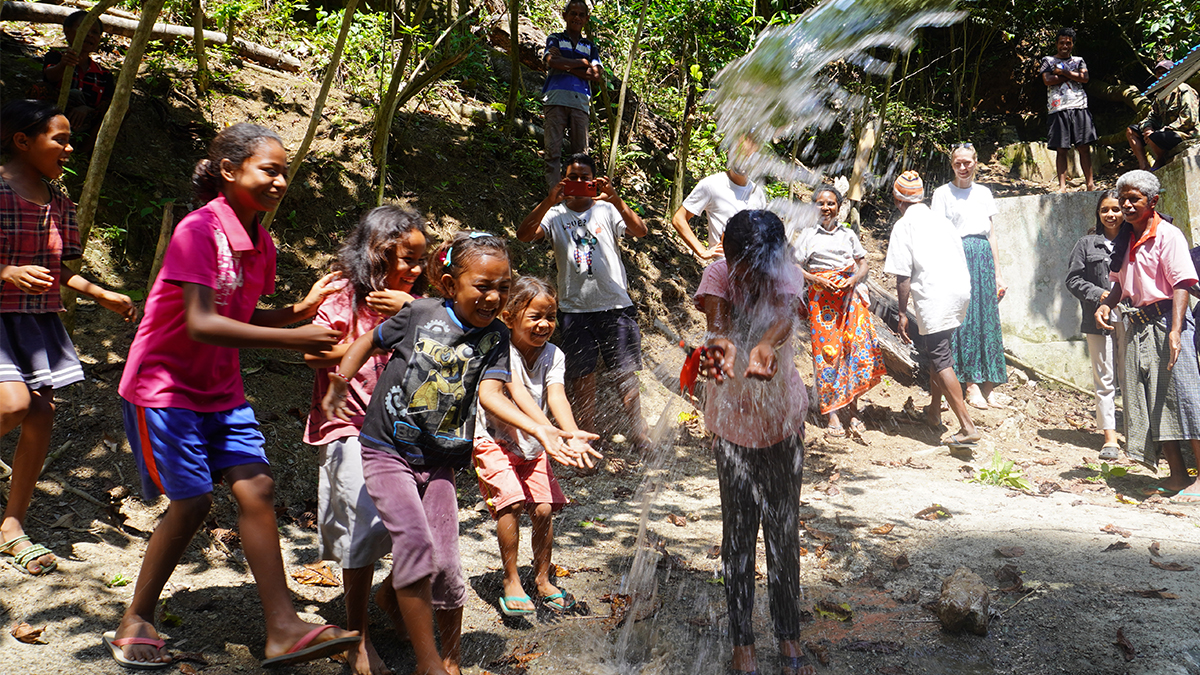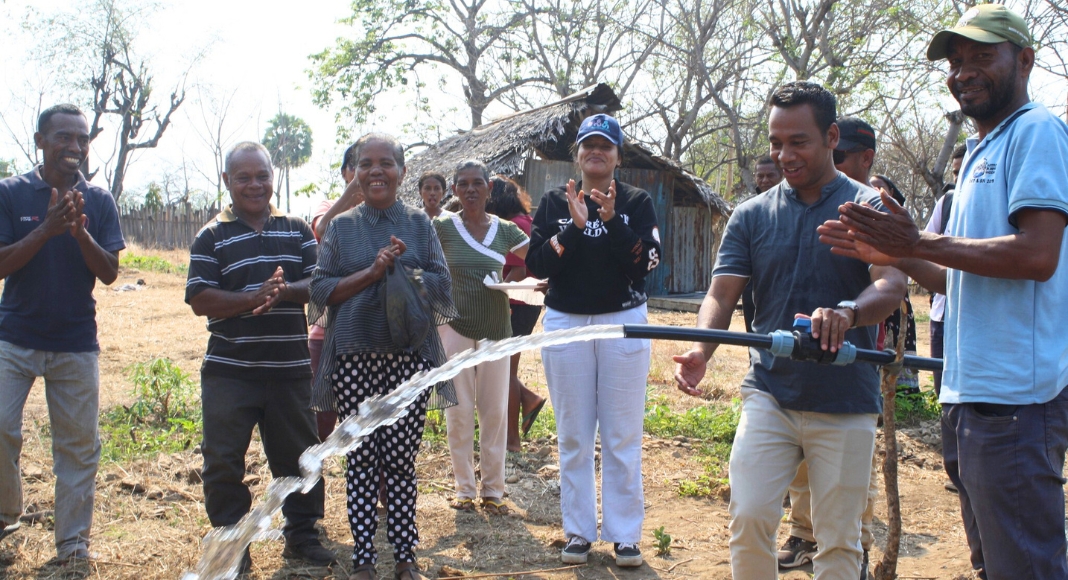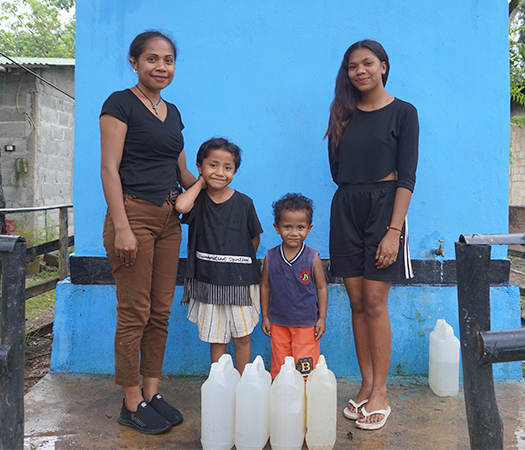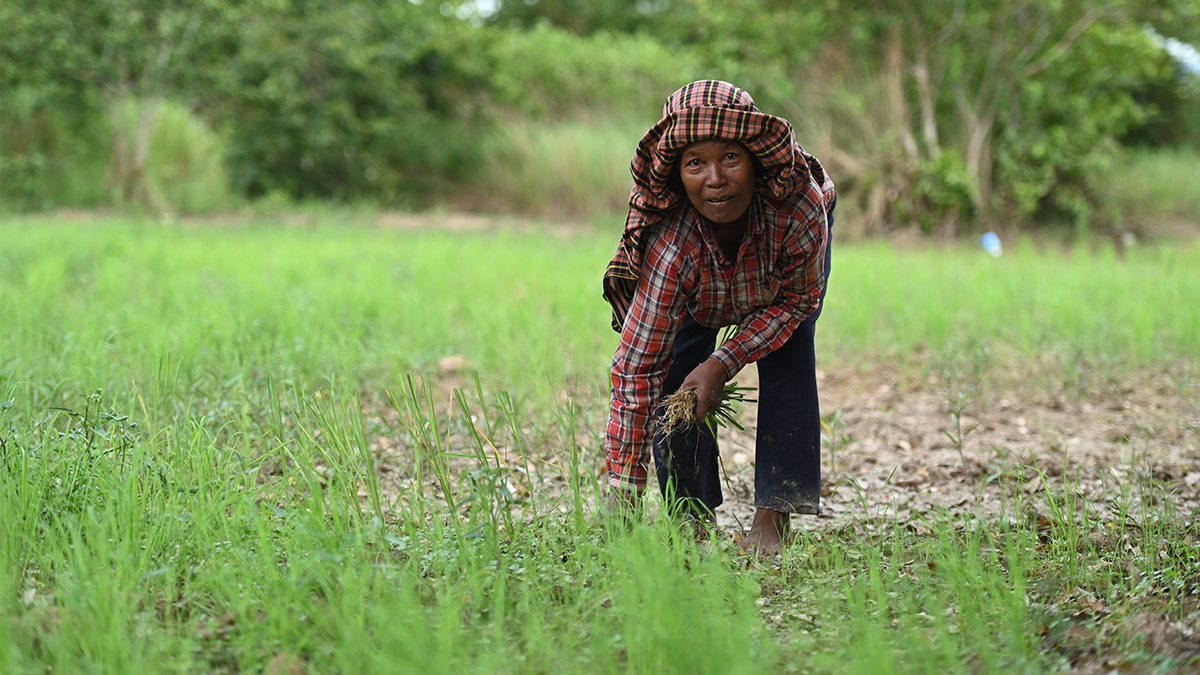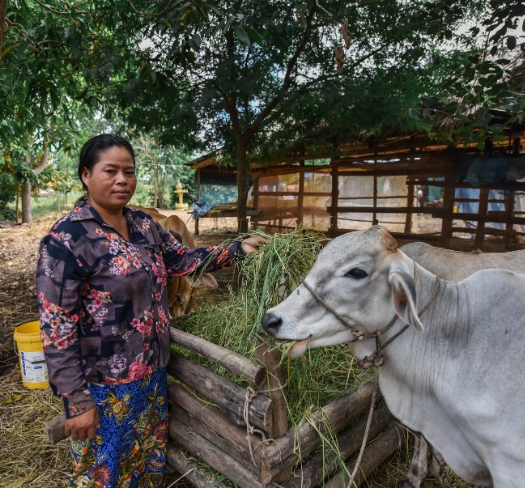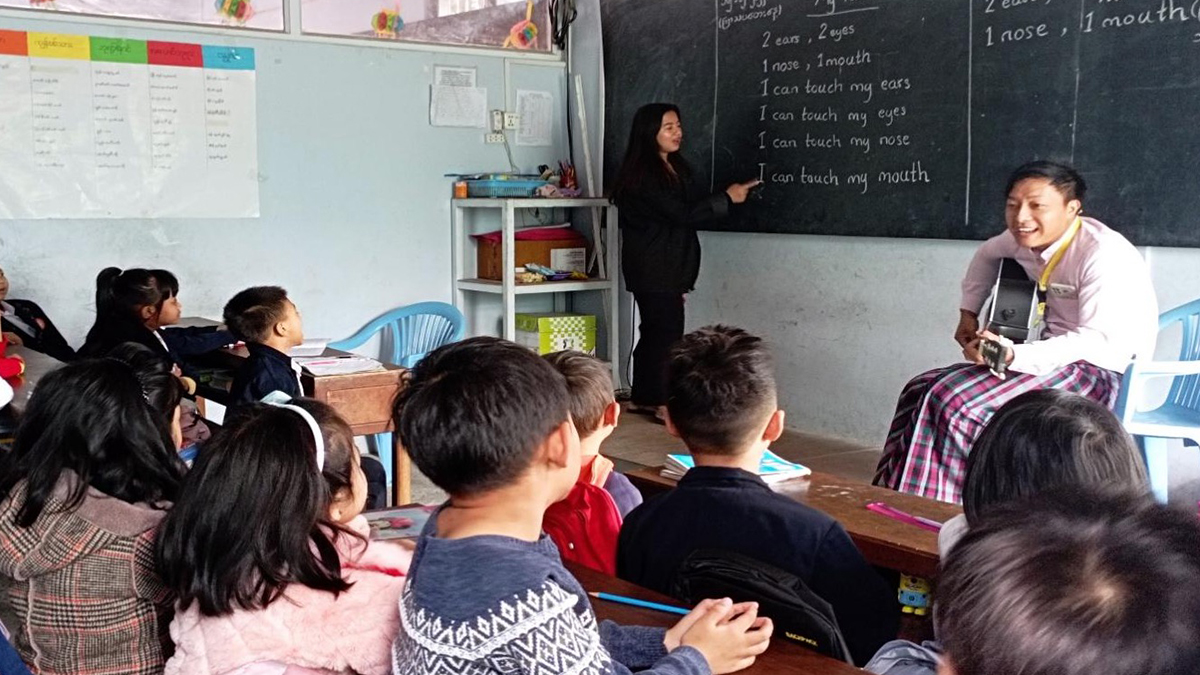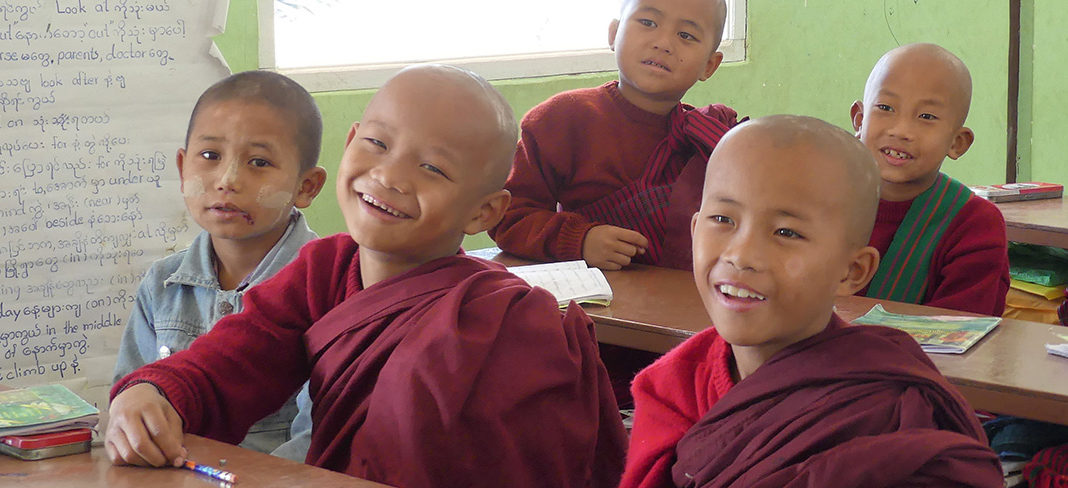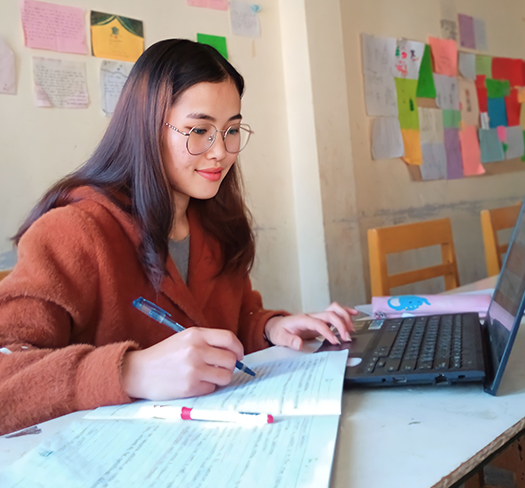The Battambang Education Project provides education opportunities to young people from very poor families in nine provinces in Northwest Cambodia.
75 percent of Cambodia’s population of 16 million people live in rural areas, with families struggling to grow enough food crops to survive. They are exposed to the exploitative practices of middlemen and farm-implement providers.
In addition, some farmers have to take loans, putting up their land as collateral, and end up losing their farm when they cannot repay the loan.
Many parents cannot afford to send their children to school and prefer them to help with the farm or earn some income. Approximately 60% of the country’s population is aged 25 years and below, but only 28 percent of primary school students go on to lower secondary school and only half of these go on to upper secondary school.
In addition, with Battambang Prefecture’s proximity to Thailand, many parents cross the border to work, leaving their children behind, at risk of trafficking and neglect.
Thanks to kind supporters like you, Jesuit Mission can assist the Battambang Education Project to ensure a better future for Cambodian youth from marginalised families by providing access to education, supporting parents in putting their children through school, and forming the young people holistically so that they can contribute to building a just, open and free society.
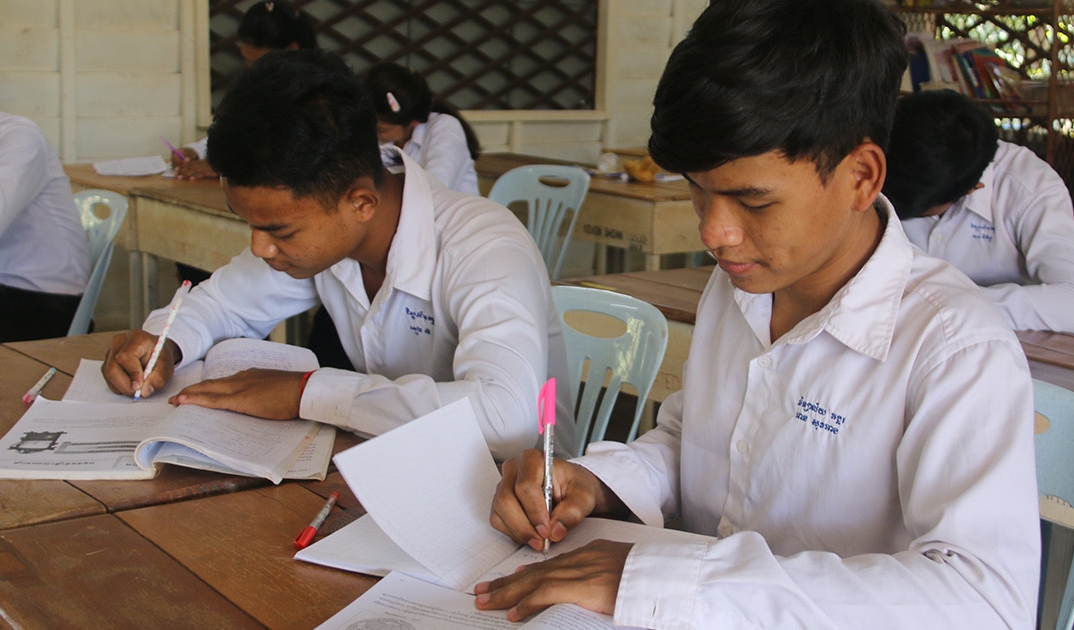
The project provides scholarships; training in areas such as leadership, psycho-social and environment; counselling; accommodation and essential services for the most disadvantaged students aged 12 to 24.
It runs six hostels across the prefecture for students from remote villages. These hostels provide not just board and lodging, but learning facilities and guidance under a supervised student-formation program.
“The support of Jesuit Mission has been critical to the development and success of our education project,” says Msgr Enrique Figaredo SJ, Apostolic Prefect of the Battambang Prefecture. “It has made education possible for hundreds of youth in Battambang Prefecture, and we will always be grateful for the tremendous support extended.”
“The support of Jesuit Mission has been critical to the development and success of our education project. It has made education possible for hundreds of youth in Battambang Prefecture, and we will always be grateful for the tremendous support extended. We hope for our continued partnership, without which it will be impossible to continue our shared work on this scale.”
Msgr Enrique Figaredo SJ, Apostolic Prefect, Battambang Prefecture
Orphans or youth abandoned by their parents are given priority, as they are deemed the most vulnerable. Other students in the program come from very poor families, with none or few of their siblings having finished Grade 12; or from villages that are very far away from schools or universities, or those who do not have relatives they can stay with near the schools. All of the hostels now have more young women than men.
Pili’s Story
“I am happy that I have a chance to help my community. I can help them through my teaching and my knowledge.”
Pili
Like 90 percent of Cambodians who live with the burden of poverty, Pili grew up in a rural area. Her parents worked hard as farmers to enable her to go to school, but by Grade 5 it was becoming difficult to continue her education.
Thanks to the generosity of people like you, Pili received a scholarship to attend the Jesuit-supported Taehen Student Centre, one of the six student centres in Northwest Cambodia run by the Battambang Education Project in partnership with Jesuit Mission Australia.
For Pili, her scholarship was life-changing.
“When I lived at home, I didn’t have the confidence to talk or share my ideas with others,” Pili says. “Living at the centre I grew in confidence. I enjoyed staying and studying with my friends. I felt the centre was my second home.”
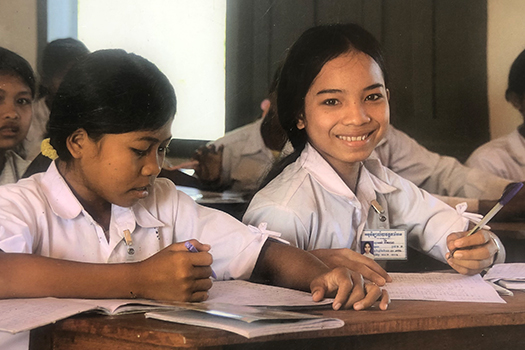
“Living at the centre I grew in confidence. I enjoyed staying and studying with my friends. I felt the centre was my second home.”
Pili
Dedicated to her education and her community, Pili completed tertiary studies in Phnom Penh then returned to take a paid role working in the office of Apostolic Prefecture of Battambang.
She also began volunteering at the Taehen Student Centre, sharing her knowledge and skills with the next generation of students.
Pili then went on to earn a Bachelor of Accounting and Finance, and in 2023 completed a leadership course. Coming full circle, she recently started a new job as Project Manager of the Battambang Education Project. It’s a role she absolutely loves, and she’s proud to be a leader at the very program that transformed her life.
Now the primary breadwinner for her family, Pili’s story is a clear example of how the support of people like you can transform a young person’s life and help them become a powerful force for change in their family, community and country.
Pili’s father passed away two years ago, so she is now the primary income earner in her family. She takes care of her bedridden mother and pays for the education of two of her younger sisters and her niece and nephew who she now cares for.
